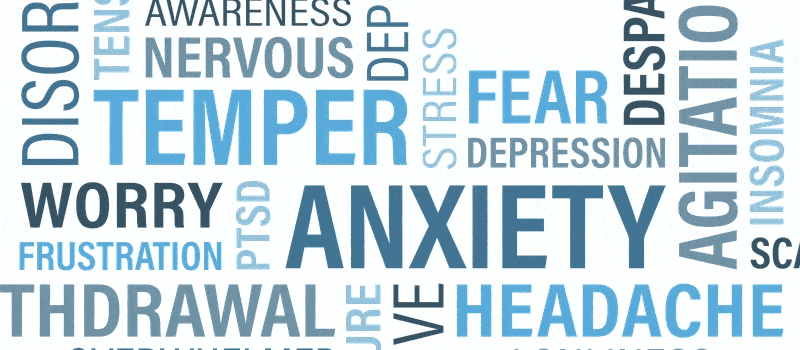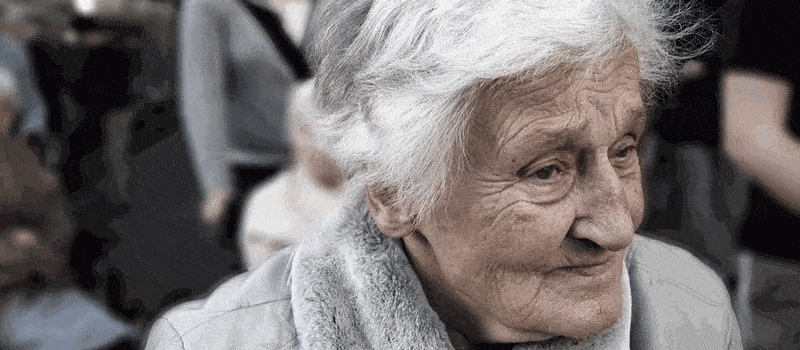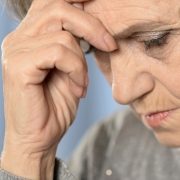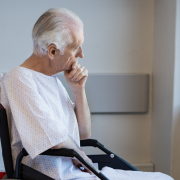Depression in the elderly
Have you ever been worried about your elderly relative? It may be a member of the family, a friend or someone you simply care for. Do they seem to be down and anxious? Do they sleep badly or has it somehow worsened recently? Have they lost their natural interest in life? Do they seem to experience a lack of enjoyment in activities they would normally love to be involved in? Do they seem to be withdrawn from social life, especially if earlier they were very sociable and outgoing? Well, if the answer is “yes” to some of those questions, it may be worth digging a little deeper into the subject.
The elderly you are worried about may suffer from depression, which sometimes affects older people. It is a serious illness, because undiagnosed and untreated, it may develop into a serious condition. Depression can severely impair the life of the person that suffers from it. As a worst-case scenario — untreated depression in old age, like in any other age, may even lead to suicide. That’s why it is important to diagnose it fairly quickly and get the proper treatment in place. But prevention is even more important. Proper care can be a key to fighting depression before it even appears.
Depression in elderly — symptoms that are difficult to spot
Unfortunately, the symptoms of depression are usually difficult to observe. It is ever more difficult when relatives have sporadic contact with the person in care. They may try to cover up some problems because they don’t want anyone to worry about their condition. Seniors may be also concerned about the stigma of having depression, even if they suspect they may be suffering from it. They sometimes don’t even want to admit to themselves that they have a problem and don’t want to seek help. As a contrary, the constant care in case of depression in old age is inevitable. The studies have shown that the majority of cases of depression in old age have their root in loneliness.
Symptoms of depression in elderly
The symptoms of depression and anxiety in older people may not be obvious. It may be hard to notice that our beloved elderly relative suffers from depression.
There are four categories of depression symptoms:
- behavioural,
- feelings,
- thoughts,
- physical symptoms.
BEHAVIOURS
- Social life withdrawal (family and friends)
- Self-care neglect and not paying too much attention to personal hygiene
- Inability to find pleasure in any activity
- Difficulty getting up in the morning
THOUGHTS
- Loss of self-esteem
- Indecisiveness
- Negative thoughts and perception of one’s self: “It’s all my fault”, “I’m no use”
- Suicidal thoughts
FEELINGS
- Irritability, moodiness and aggression
- Emptiness and sadness
- Sense of being overwhelmed
- Feeling worthless or guilty
PHYSICAL SYMPTOMS
- Sleep problems — sleeping more or less than usual
- Permanent tiredness
- Memory problems
- Slowed moves
- Various pains:
- Back and neck pains
- Headaches and migraines
- Chest pain
Depression and anxiety in elderly may be hard to spot. But the sooner depression is noticed, the faster is cured.
Dementia and depression — is there a link?
There has been a study conducted to see if there is any link between dementia and depression. It lasted 17 years and nearly 1,000 elderly people took part in it.
According to the result of this study, the dementia and depression in the elderly may be linked. It does not necessarily mean that depression causes dementia. It only suggests that there is an association between depression in elderly people and the risk of dementia and Alzheimer’s. The basic result of the study shows that having depression may nearly double the risk of developing dementia later in life. They found that:
- 22% of depressed participants at the start of the study went on to develop dementia, and
- 17% of not depressed participants at the start of the study went on to develop dementia.
Even scientists don’t fully understand the mechanisms within the brain. But undoubtedly a long period of depression leads to isolation and inactivity. According to dementia experts, “the brain loves company”. Depression or dementia – in case of both diseases it is crucial to get constant help for the elderly loved one.
Institutionalised help — a risk factor for developing depression in the elderly
Depression in old age indeed has its roots in loneliness. But what if we are unable to take care of the older members of the family ourselves? What if they are doomed to loneliness?
Care homes may be an option that we can take into consideration in such a situation. It is an organised facility where pensioners are supposed not to feel socially isolated. They can be a part of a bigger group. Unfortunately, living in a care home is yet another risk factor for developing depression. Moving in the later years of life to unfamiliar surroundings can cause significant and unnecessary trauma. Any mean of institutional care almost always means losing one’s dignity. This may lead only to the worsening of mental and physical health.
Dealing with ageing parents — depression
If the parent experiences a constant low mood for two weeks or more, they may be suffering from depression. It’s not likely that the condition resolves with time alone, and it will most probably get worse.
It is crucial to take care of our loved one and get medical help as soon as we notice the symptoms. Depression is very dangerous, the person suffering may deteriorate over time and decline physically. They may be also attempting to self-harm or abuse medical substances.
On top of getting professional medical help, the depressed person should be looked after, at all times. Remember about this constant care while dealing with aging parents – depression could be a fatal disease.
How to help the elderly with depression
Is there any alternative to a care home in case it is necessary to hire professional carers? Live-in care may be a solution if we are unable to give round-the-clock-care ourselves. It will provide constant care without causing unnecessary stress of moving into a care home.
Depression or dementia, Alzheimer’s or Parkinson – many conditions require constant care. A live-in carer is a full-time support and companion who lives with the person cared for in their home. The carer provides bespoke one-to-one care that is dedicated to the specific needs of the senior. Caregivers help with personal care, maintaining the home, running errands and nourishment. They also cooperate with other medical services that may be looking after the person. The range of this service is very complex. Carer prevents trips and falls, walks the dog, or makes sure that the person took their medications at the right time of the day.
Live-in carer — cares for the body and mind
But this type of personal care is not limited to helping with all the physical tasks. The “mental” side of it is even more important, especially when one is struggling with depression.
The carer sees the person all day every day and is more likely to observe any behavioural changes. It is crucial to spot any worrying changes fast to prevent and treat the condition properly. It seems that the companionship and talks are the best solutions to fight off low mood and depression. The simple questions like “How are you feeling?” or “How are you coping with everything?” can make all the difference. Often what seniors need the most is just a companionship. They just need someone to chat and someone to spend the quality time with. Many carers become friends with the person cared for.
A live-in carer enables your loved ones to live the way they want every day, with dignity and no stress. This type of care is worth considering if we suspect that our loved one may be suffering from depression. Depression can be a terminal illness, please don’t forget about it. Act before it’s too late.





















